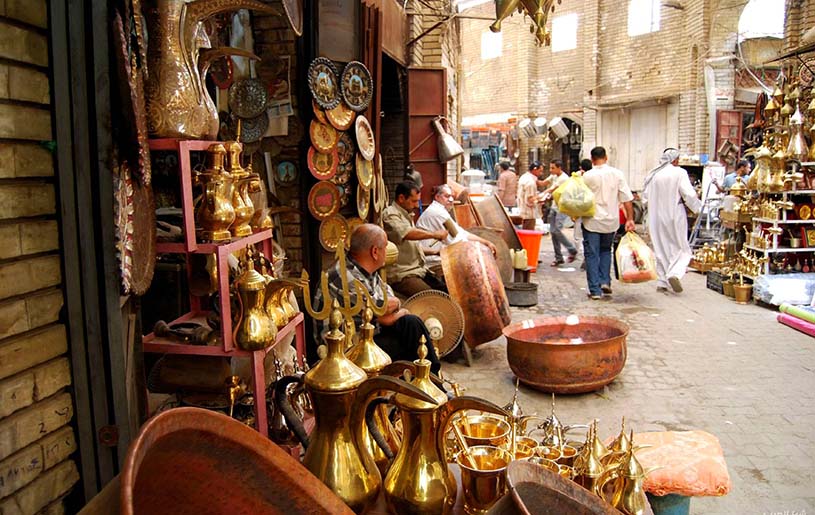Atlanta a place where history, culture, and modernity seamlessly blend into a captivating travel experience. Whether you’re a first-time visitor or a seasoned traveler, having a comprehensive guide to navigate the city’s offerings is key to making the most of your trip. From must-see attractions to practical travel tips, ensuring your adventure in Atlanta is both enjoyable and hassle-free. Dive into this ultimate travel resource to uncover the best of what Atlanta has to offer and discover how to navigate the city like a local.
1. Essential Packing List
1.1 Travel Documents and Money
When traveling, it is crucial to ensure your travel documents and money are secure and well-organized. Here are some must-have items:
- Passport and Visa: If you’re an international traveler, ensure your passport is valid and your visa meets the entry requirements. U.S. visa policies may change, so it’s best to confirm the validity of your visa and entry requirements before traveling. Remember to make photocopies of your passport and visa in case they are lost.
- ID and Driver’s License: In the U.S., especially if you plan to rent a car, a driver’s license is essential. Additionally, carrying an ID can help verify your identity, particularly when checking into hotels or dealing with other identity verification needs.
- Credit Cards and Cash: While most merchants accept credit cards, having some cash is still useful for small shops, restaurants, or markets. It’s advisable to carry some cash, both in U.S. dollars and possibly use ATMs for cash withdrawals upon arrival.
1.2 Packing Your Luggage
- Clothing: Atlanta experiences distinct seasons. Summers (June to August) are hot and humid with temperatures often exceeding 30°C (86°F), so breathable, comfortable clothing like short-sleeve shirts, shorts, and sandals are recommended. Winters (December to February) are not extremely cold but temperatures can drop to around 0°C (32°F), so packing warm clothing like sweaters and jackets is wise. In fall and spring, temperatures are moderate but with notable temperature differences between day and night, layering and a light jacket are ideal.
- Rain Gear: Atlanta experiences frequent summer thunderstorms, so packing a folding umbrella or raincoat will make your trip more comfortable. Especially during thunderstorms, a wind-resistant raincoat is preferable.
- Comfortable Shoes: Atlanta’s attractions are spread out, and many areas require walking. Comfortable shoes will make your trip more enjoyable. Opt for breathable shoes or walking shoes with good support to alleviate fatigue from long periods of walking.
1.3 Electronic Devices
- Phone and Charger: Your phone is not only a tool for communication but also for taking photos and navigation. Don’t forget to bring a charger and consider a power bank for convenience. Most public places and transportation in Atlanta have charging outlets, but a power bank ensures you stay charged while outdoors.
- Camera: If you’re into photography, bring your camera. Atlanta has many beautiful sights worth capturing with a high-quality camera. Also, carry extra batteries and memory cards to ensure you don’t miss any moments.
- Adapter: If you’re an international traveler, note that U.S. outlets are different from those in other countries. Bring an adapter to avoid inconvenience. The U.S. operates on 120V electricity at 60Hz, so if your devices don’t support this voltage, you might also need a converter.
2. Travel Preparation
2.1 Research and Planning
Before heading to Atlanta, some basic research and planning are essential:
- Tourist Attractions: Atlanta offers many famous attractions. Besides the Georgia Aquarium, Atlanta Botanical Garden, and Martin Luther King Jr. National Historical Park, there are other notable places like the Atlanta History Center, World of Coca-Cola, and Zoo Atlanta worth visiting. Check these attractions’ opening hours, ticket prices, and whether reservations are needed. Especially during peak tourist seasons, popular spots might have long lines, so planning ahead can save time.
- Transportation: Atlanta’s public transportation system includes the MARTA subway and buses, which cover a wide area but may not be convenient in some regions. Renting a car is often a better choice, particularly if you plan to explore beyond the city center. Knowing about rental companies, parking regulations, and potential traffic congestion will make your travel smoother. Rush hour in Atlanta typically occurs from 7:00-9:00 AM and 4:00-6:00 PM.
- Accommodation: Atlanta offers a range of accommodation options, from luxury hotels to budget inns, in both downtown and suburban areas. It’s advisable to book your stay in advance, especially during peak tourist seasons or major events, to ensure a comfortable stay. Use online booking platforms to check hotel reviews and prices to choose the best place for your needs.
2.2 Health and Safety
- Vaccinations and Health Checks: Depending on your departure point and health status, ensure you have the necessary vaccinations. Check Atlanta’s current health and safety requirements before traveling. Depending on the latest pandemic situation, you might need to provide proof of a negative test or vaccination. It’s also a good idea to bring some common medications and personal care items, like cold medicine, pain relievers, and allergy medication.
- Medications and First Aid Kit: Carry some basic medications such as cold medicine, pain relievers, and allergy treatments. A first aid kit with band-aids, antiseptic, and gauze can also be useful. Although Atlanta has well-equipped pharmacies and hospitals, having basic first aid supplies can save time in an emergency.
3. Must-Visit Attractions
3.1 Georgia Aquarium

The Georgia Aquarium is one of Atlanta’s most popular attractions. This world-class aquarium is renowned for its massive tanks and diverse marine life exhibits. The “Ocean Voyager” exhibit features giant marine creatures like whale sharks and manta rays. In the “Cold Water Quest” exhibit, you can see polar bears and seals in their icy habitats. Additionally, the aquarium has interactive exhibits such as touch pools where you can get hands-on with starfish and small sharks. It’s highly recommended to purchase tickets online in advance to avoid long lines.
3.2 Atlanta Botanical Garden
The Atlanta Botanical Garden is a great place to relax and enjoy nature. It features a variety of plants and flowers, including impressive greenhouses and outdoor displays. The “Tropical Rainforest” exhibit mimics a tropical rainforest environment with vibrant plant life. In the “Children’s Garden,” kids can enjoy interactive play areas and learn about nature. During the summer, the garden hosts special events like “Garden Lights” and “Floral Concerts,” providing unique experiences for visitors.
3.3 Martin Luther King Jr. National Historical Park
The Martin Luther King Jr. National Historical Park is an excellent place to learn about American civil rights history. This site includes Martin Luther King Jr.’s birthplace, his church, and a visitor center. At his birthplace, you can see his childhood home and learn about his family background. The “Ebenezer Baptist Church” is where you can experience the religious beliefs and oratory style of this great leader. The visitor center displays numerous historical documents and exhibits about the civil rights movement. Visiting these sites provides a deeper understanding of Dr. King’s life and contributions.
3.4 Atlanta History Center
The Atlanta History Center is a museum and cultural center showcasing the history of Atlanta and the surrounding area. It includes several exhibits like the “Southern Folk Museum,” “Civil War Museum,” and “Historic Gardens.” The historic gardens exhibit 19th-century architecture and gives a glimpse into past lifestyles. Through various exhibits and interactive experiences, you can gain insights into Atlanta’s development and cultural heritage.
3.5 Zoo Atlanta
Zoo Atlanta is a family-friendly destination featuring a variety of animals such as giant pandas, African elephants, and gorillas. The zoo is divided into themed areas like “African Savanna,” “Asian Forest,” and “South American Rainforest.” In these areas, you can observe the animals’ natural behaviors and habitats. Additionally, the zoo offers educational programs and interactive experiences such as animal feeding activities and behind-the-scenes tours, allowing you to learn more about these animals up close.
4. Food Exploration
4.1 Traditional Southern Cuisine
Atlanta is renowned for its rich Southern cuisine. Here, you can savor authentic dishes like fried chicken, cornbread, and braised beef. Especially recommended is the “fried chicken,” which is crispy on the outside and tender on the inside, served with classic sides like cornbread and pickles. Local restaurants such as “Southern Fried Chicken” or “Old Southern Kitchen” are great places to try their signature dishes.
In addition, Atlanta boasts many famous Southern restaurants and bars offering a variety of dishes such as “slow-cooked beef,” “smoked ribs,” and “bacon and beans soup.” These establishments often provide friendly service and a comfortable dining environment, allowing you to fully experience the unique charm of Southern cuisine.
4.2 International Cuisine
Aside from traditional Southern fare, Atlanta has a wide range of international restaurants. From Italian to Middle Eastern cuisine, Mexican to Asian flavors, you can find it all here. For example, you can enjoy authentic Italian pizza and pasta at an “Italian Bistro,” try delicious kebabs and hummus at a “Middle Eastern Restaurant,” or savor tacos and spicy nachos at a “Mexican Eatery.”
Atlanta’s international restaurants often focus on fresh ingredients and unique flavors, and some even offer live music performances and cultural events, enriching your dining experience.
5. Shopping Recommendations
5.1 Shopping Malls

Atlanta’s shopping malls, such as Lenox Square and Phipps Plaza, are a paradise for shopping enthusiasts. These malls feature numerous luxury brands and fashion stores like Chanel, Louis Vuitton, and Gucci. Here, you can find the latest fashion trends and high-quality products.
Lenox Square also offers various dining options, including upscale restaurants and casual cafés, making it a great spot for shopping and relaxation. Phipps Plaza is known for its luxurious shopping environment and unique architectural style, providing a delightful shopping experience.
5.2 Local Markets
In addition to large shopping malls, Atlanta has interesting markets like the Millennium Park Farmers Market. Here, you can find fresh local produce and handmade crafts such as fruits, vegetables, bread, and artisan goods. These markets offer not only diverse shopping options but also a chance to experience the local lifestyle.
Moreover, Atlanta’s “vintage markets” and “thrift stores” are worth exploring. In these places, you can find unique antiques, second-hand books, and other interesting items, offering a different kind of shopping fun.
6. Practical Tips
6.1 Transportation Navigation
Traffic in Atlanta can be congested, especially during peak hours. Use navigation apps to plan your routes in advance and try to avoid traveling during rush hours. If you plan to rent a car, understanding parking regulations and fees is also important. Parking spaces might be limited near downtown and major attractions, so consider staying at accommodations with parking facilities or using public transportation.
6.2 Language and Communication
While Atlanta is a diverse city, English remains the primary language. Knowing some basic English phrases for asking directions, ordering food, and shopping will help make your trip smoother. Most restaurant and store staff are friendly, and if you encounter any language barriers, don’t hesitate to ask for help.
6.3 Tipping Culture
Tipping is a common practice in the U.S. Restaurant servers, taxi drivers, and hotel staff typically receive a tip of 15%-20%. The amount of tip is usually based on the quality of service and the total bill. In restaurants, the quality of service often influences the tip amount, and good service deserves an appropriate tip.
6.4 Local Laws and Customs
Understanding local laws and customs is also important while traveling. For example, smoking is prohibited in many public places, and adhering to these regulations not only helps avoid fines but also makes your trip more pleasant. Additionally, respecting local cultural practices and religious beliefs shows courtesy and respect to others.


